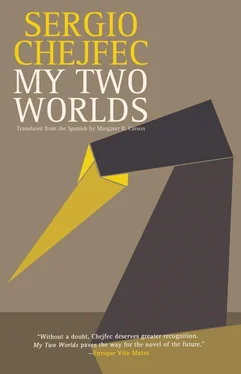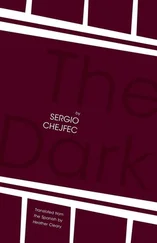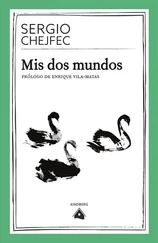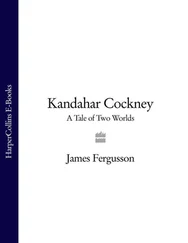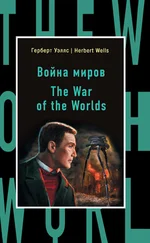It’s one of the things that will always remain a mystery, and which no one believes when I mention it, of course. But it happened, and I’ve remembered it so truly that I can’t manage to visit any park and its corresponding lake without reliving those feelings of perplexity I experienced when the carp and the turtles were observing me, as if they scrutinized me. What must they have thought of me? What do animals think of me, if they indeed think. . I elected to return to the path that circled the lake to go on with my walk; I had the sensation of having been present at a part of an extended reality, though obviously minimal, reserved only for my private experience.
I don’t ask myself those types of questions on a habitual basis, and when I do they refer to people: what do those who know me think of me, or rather, what must they think of me? I’m not referring to those closest to me, those who’ve known me for years and with whom I have a lasting bond. I worry about the opinion of the others, the half-acquaintances, if I can call them that, those who know me a bit, maybe only by sight, and to whom I’m relatively familiar, or on the contrary, relatively hazy and non-existent. It’s a recurrent question, which otherwise doesn’t always make me as curious, perhaps because of its sporadic nature, yet it’s one I take up every so often as proof of my own existence, or rather, my physical permanence in the world.
In one way, the question acts as a private beginning of fiction, or rather, as a beginning of private fictions: I see myself through the improbable eyes of people for whom, quite possibly, I don’t exist in actual reality and in whose minds I’m no more than a blip. Here are the facts: that afternoon in the south of Brazil, it was November, the month of my birthday. When I noticed the coincidence I realized that I’d assigned to turtles and carp the thoughts that each year visited me with astronomical punctuality. The month was even well along — more than half over, only a few days left. As is evident, the occasion served as an invitation to meditate on the passage of time, on the past and on the future, the unknown and the abandoned, what had been lost and what had been squandered, on consolations and the promises of the future, etc. All of it like that, fairly messy. An invitation I don’t believe I wasted. I went on my way, then, head bowed. I have no idea why, but whenever I think about time, I look down at the ground; maybe it’s the only way I can distract myself, because I immediately set about scrutinizing the unforeseen details of its surface. I was headed for the end of the lake and kept noticing the imperfections in the dirt path that had stood up against people’s footsteps.
In the past I used to think that the best way of spending my birthday was to keep hidden and opt for a one-day banishment: to leave home, go to the city’s unknown or rarely visited district, and devote myself to roaming around for the day as if I were somebody else, or at least as if I didn’t exist, or were indeed nobody; or to adopt some twenty-four-hour personality, etc. I’d take any train at all and get off at a remote station. Then I would set off walking, calmly and tirelessly, as if I’d arrived in another country once I stepped off the train. But I was in my own place, in my own city, I’d actually lived not far from there for a long time, a phase that now seemed to belong to somebody else, so that, alien to and simultaneously accustomed to that landscape, I kept recognizing the signs of my old life, although devalued. I was never capable of following other people, though the idea occurred to me more than once, as a subterfuge to while away these long, aimless birthday walks.
It could happen that not too far from the railway station, but far enough, I would come upon some solitary person walking through the empty streets — under such circumstances, tailing another person was impossible, because in those neighborhoods the itineraries are too short, and especially because I had no way of dissembling or fading into a landscape as barren and quiet as that, both of us, walker and pursuer, would be the only living creatures in the desert, and thus too visible, etc. — and so it could happen that if I saw someone in the empty streets, I’d feel an initial impulse to follow him at a discreet distance, but in the end I’d give up on it; the very desolation of the neighborhood would override any argument and conviction. It was as if the desire for adventure, for fiction to a certain extent, as I explained just now, which had originated someplace as a variant of curiosity, had dissolved before assuming any true form.
The atmosphere on the outskirts of the city turned out to be both intimate and alien to me; I could recognize the language, since I shared it, but I’d lost a bit — or a great deal, I don’t know — of the pulse of its expressions and of the local idiom in general, its resonances. And so these birthday walks were approximate in more than one sense. My birthdays consisted of vague gestures of this type, an exile for a few hours toward a part of the past and toward a geographic area that no longer belonged to me, but because they’d been mine once, I had considered them united until that moment: both parts were one and the same, a mixture of time and place. When the day was nearly over, I’d return from the outskirts as if I were coming back not from another reality, but rather, from a brother planet, an outlandish dimension into which I could set foot only once a year, when the calendar, underscoring my presence, so to speak, in the world, invited me by this same operation to suspend that presence, to doubt it, or at least, to hide it.
The path that ran along near the water kept displaying its neglected surface; in reality, I didn’t expect it to change, but between one thought and another, some sideways glance at a distraction or some specific point in the landscape that called for my examination, I gradually arrived at the aforementioned place, the oblong building that stood at the lakeshore, with large, empty terraces on either side and great, wide windows that gave onto the water. One didn’t need to examine it for long to know that it had been the old boathouse, converted at some point into a café, according to what it said on several lecterns on both terraces and on a sign over the entrance: CAFÉ DO LAGO. The structure was modest and embellished at once. As one could easily imagine, it was in the same style as the terrace on the plaza by the pedalinhos, as well as the guardhouses, or tool sheds, whatever they were, that were scattered across the park.
I went to sit down on the left-hand terrace, as far as possible from the water, from where I had a rather privileged view of the lake; I could also see, from the vertex of the old boathouse, how the panorama slowly opened out until it achieved its full breadth even beyond the swans’ area, which now could be seen, on the left-hand shore, as a slightly undefined concentration, a mixture of trees and various facilities. While I was waiting to be served, I began to consider the most recent events. Obviously, the episode with the fish and the turtles, and the associated thought, too, which arrived like an instantaneous revelation, though I should have foreseen it: I was ensconced in my birthday month, and what’s more, the day itself was only a few days off. By now I’m sufficiently acquainted with the fatal succession of nights — Borges said this, I believe — to understand that no distraction or idea can stop time from being realized and the future from arriving. It’s not that I wanted to postpone my birthday, it was my certainty that it made no difference to start thinking about it in advance, though I hadn’t expected to, in that park in the south of Brazil.
Then I happened to have the thought, as I mentioned before, of the two friends whose birthdays seemed to them an opportunity, or alibi, for writing about themselves in relation to time, or to life and its possible changes, and the impact all this had on them. And as I remembered them, an odd thing happened, my birthday vanished from the horizon as a looming eventuality, to assume the validity of the present itself. I felt, as I say, truly ensconced in the day of my birthday. I mean, in one way or another, reality had organized itself in such a way as to anticipate this date, and it inspired in me a feeling of solidarity and concord toward both friends and their books, and one of gratitude toward the carp and the turtles for prompting the moment and having allowed me to preside over that near-secret aquatic celebration. Consequently, from where I sat, I could devote myself to contemplating the calm waters of the lake, and also to reconsidering for a moment these most recent events and thanks to them, understanding that the whole park in its entirety had worked as an unexpected catalyst for my birthday.
Читать дальше
